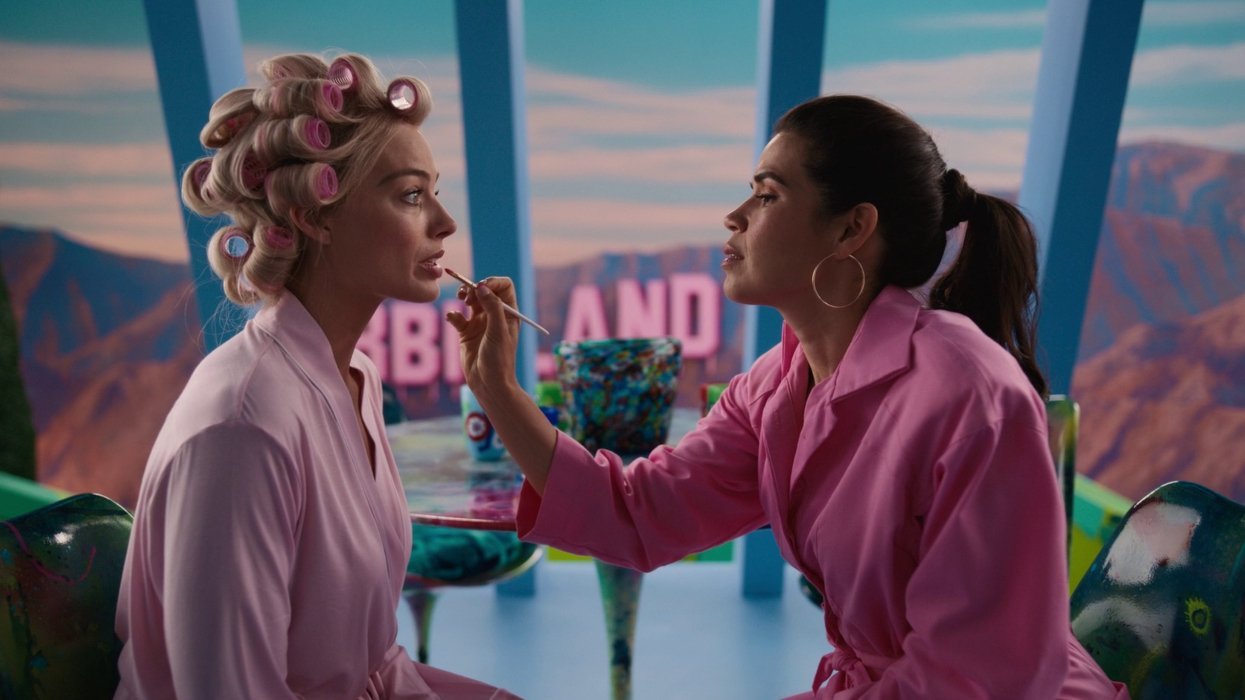I always felt out of place in the world. I was a closeted, Black teenager trying to find his footing in the world in a sea full of vile, insecure, vicious antagonists who mocked my soft-pitched voice and feminine traits as if they were comedic. In actuality, the mocking made me think about many things, including self-harm. But I decided to take the road of trying to assimilate in order to survive.
Navigating through the hallways of an all-boy high school, I deepened my voice, sharpened my posture, and lived a double life where I was miserable and hurting on the inside — even though others thought I looked happy. Guess what, folks? I was not happy. I had to sneak around and talk to guys privately while presenting as straight in public. I'd often think, "What the f*ck?"
I felt like I had to be "perfect" for society, so I changed my way of being. I eventually got to a place where I came out to the world (without my consent, but I'll save that for another essay on having narcissistic boyfriends) and began to be myself. Still, not so much. In certain spaces predominantly frequented by heterosexual men who viewed me as being more on the feminine side, I would assimilate again and tweak my personality in order to feel safe and make them feel comfortable.

Warner Bros. Pictures
Fast-forward to adulthood and work, where I'm constantly striving for "perfection" when it comes to assignments, my image in public, and even down to withholding certain responses, comments, and conversations I felt wouldn't "perform well" depending on certain audiences. And this is outside of white people; including a wide group of different types of people that I come across.
Even when it came to dating, I felt pressured to be the "perfect" boyfriend, like I couldn't do this or that in order to be seen as a certain way. We can all fall victim to this pressure. Even when it came to my weight, I had to be the "perfect" weight because I felt I wouldn't be "perfect" if I didn't look a certain way. But you know what? At one point, I said, "F*ck all that." I began to slowly reassure myself that perfection is in the eye of the beholder, and I don't have to be perfect to appease anyone.
Society isn't so damn perfect, even though it is to blame for these standards of perfection. People should start looking at their own backyards and finding the skeletons that need to be cleaned up.
While attending a screening of the Barbie movie in the summer of 2023 and preparing for a junket with the actors in the film, I watched the seemingly flawless Barbie character fall apart like the rest of us and try to remind herself that she had to be "perfect," making me feel completely seen right there and then.

Warner Bros. Pictures
Like the character, I felt that there wasn't room for imperfections or anything else. Everything would be fine as long as I was seen as this perfect individual. As her Barbieland began to crumble (due to patriarchy), she began to realize that it's fine not to be the perfect doll that Mattel and the world wanted her to be. It wasn't attainable.
It wasn't until she fell to the ground in Weird Barbie's house that Gloria, played by America Ferrera, delivered a beautiful monologue exposing how many women have always felt. Even in the advance screening I attended, the entire audience just went silent.
"You have to never get old, never be rude, never show off, never be selfish, never fall down, never fail, never show fear, never get out of line. It's too hard! It's too contradictory and nobody gives you a medal or says 'thank you.' And it turns out, in fact, that not only are you doing everything wrong, but also everything is your fault. I'm just so tired of watching myself and every single other woman tie herself into knots so that people will like us. And if all of that is also true for a doll just representing women, then I don't even know."
Though I'm not a woman, the words that Ferrera breathed into this monologue could touch just about anybody. No one is giving out medals when you're doing everything you can to survive in this society, so why in the hell do we keep appeasing, pleasing, and cheesing for no rhyme or reason?
Another scene in the so-called "Real World" of the film showed Barbie sitting on the bench next to an older woman and telling her how beautiful she was. The older woman responded, "I know," and they laughed. It doesn't matter what age you are, or how you look, or who you are — you're beautiful on the inside and out, and you should know that about yourself.
When Barbie ended, I stayed in my seat. I felt grateful that Greta Gerwig put together a film that not only included representation and diversity but also sent out a message for people to be the best they can be, and to feel comfortable in their own skin no matter what society may deem as "perfect."

Warner Bros. Pictures
I was fortunate enough to attend another screening of Barbie at NeueHouse Hollywood in January 2024. This time, Jennifer Lopez hosted the event, which included a talkback between America Ferrera and Variety's Clayton Davis. It was an emotional whirlwind again — this time, I was with one of my best friends/colleagues who watched it for the first time and got teary-eyed while seeing the film.
In the post-film panel, Davis asked Ferrera about the monologue, and the actress revealed that she's moved whenever she hears other women reciting the speech. It took two days to film the scene, Ferrera recalled, due to the high number of actors in it.
But this movie was never just about a doll… it was about exposing how the world can make us feel and reminding us that we can't let ourselves get wrapped up in the web of lies, standards, and projections that the world pushes on us.
I am Ty Cole, and I am happy with not being perfect. I'm happy being just the way I am.























































